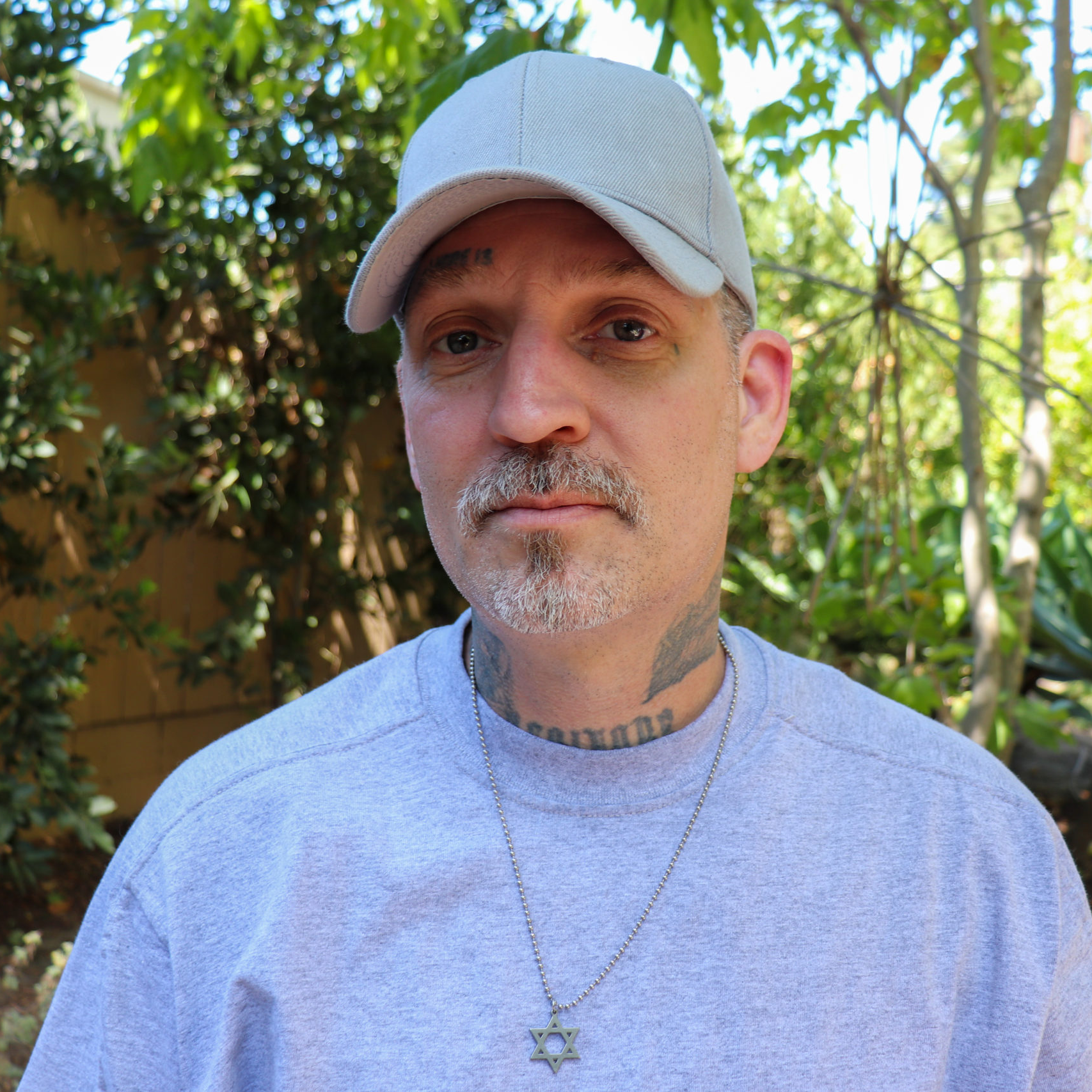“Sometimes you have to be the change you wanna see in the world,” Melvin explains to a fellow resident as we get ready to walk upstairs. This statement perfectly reflects how he is seen living his life in the Beit’ T’shuvah community.
In the mid 70s, Melvin was being raised by his father, who – despite being an active gang member, drug addict, and alcoholic – managed to gain full custody of him. His mother decided she didn’t want to put up with any more of the violence and abuse she had suffered at the hand of his father. “I guess the last straw was him throwing her out of a moving vehicle,” he recalls. Melvin’s mother was not the sole heir to the abuse inflicted by his father. Melvin too indured physical and mental abuse. “I was physically abused and verbally abused, things like, I was claustrophobic and afraid of the dark as a little kid so as punishment my dad would put me in the closet which was kind of small and stuffy, lock me in there and turn off the light. I’d be stuck freaking out until i’d pass out.”
The odds were stacked against Melvin at an early age. “I remember looking in the drawer to get a spoon for cereal as a little kid and the spoons were all burnt on the other side from him doing heroin,” he says. Melvin was groomed into the lifestyle of gangs, selling and abusing drugs from as far back as he can remember. At 12 years old, Melvin was sent to stay with his aunt and cousin while his father was in rehab. It was with his cousin, who was 14 at the time, that he got his first taste of meth. “It made me feel like I could take on the world,” Melvin says. He continued to chase this feeling throughout his teenage years, using alcohol, meth, and whatever else came his way.
Fully immersed in the lifestyle of gangs, drugs, and alcohol abuse, it didn’t take long for the law to catch up with him. Melvin was trapped in the revolving door of the prison system, and after picking up his 3rd strike at 29, he was sentenced to 35 to life. His first 12 years in prison, he conducted himself in the same manner as his previous incarcerations, mainly concerning himself with survival, whether it be through violence, hustling, or drinking homemade alcohol.
It wasn’t until around 2015 – while already being held in the hole on a battery charge – when he contracted “valley fever,” a debilitating infection contracted by inhaling a microscopic fungal spore, where was confronted with his own mortality. Unable to get the medical attention he needed, he started contemplating dying alone, in a cell, with no legacy to leave behind aside from being a dope fiend, gang member. Already having some connection with his Jewish heritage, he turned to God, asking for an opportunity to be something more than a statistic and to serve in this world.
Melvin’s prayers were answered, and in a profound moment, he heard the voice of God speaking to him directly. As he recalls that moment, he looks toward the sky, reminiscing on the impact it had on his path to recovery.
In the span of three days, he started to regain his health. By the time he finally did get medical attention he had already overcome the valley fever. He hit the ground running attending meetings of Alcoholics Anonymous, connecting with the Rabbi, maintaining a conscious contact with God, and writing to Beit T’shuvah. Melvin spent his final 7 years of incarceration living with drive and purpose. He received an opportunity for parole and with the help of Beit T’shuvah, it was granted.
Since Melvin has arrived, He has taken advantage of every opportunity to continue his personal growth. “Having a future means focusing on what I can do to be better rather than focusing on what I can do to get high,” he says. Melvin aspires to intern as a program facilitator for Beit t’Shuvah as soon as he is able and ultimately find a career in treatment helping people with similar backgrounds.
When he’s not busy with his duties as a house monitor or lending a sympathetic ear to a fellow resident, he can often be found on the patio, connecting with others through his art and poetry. “People give a piece of themselves in their art, you can always find something to relate to.”
Melvin has truly found a safe place to grow and has earned his place as a pillar of the Beit T’Shuvah community.
